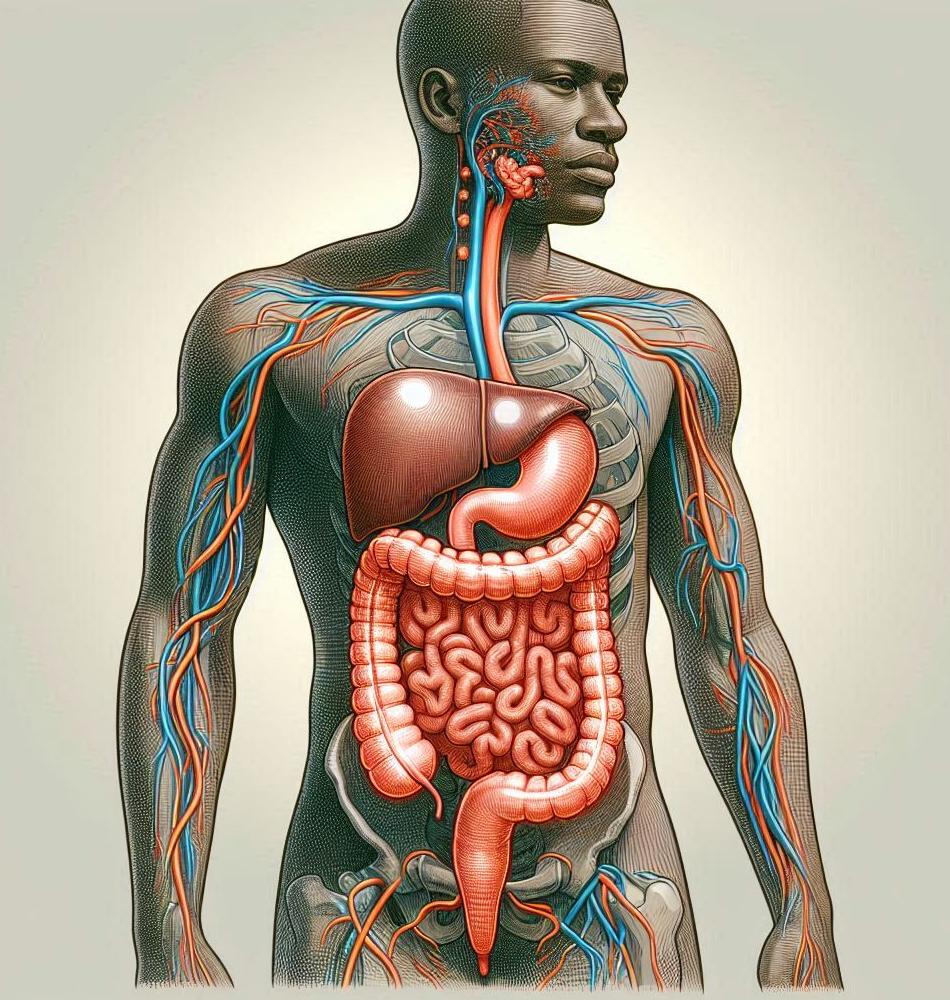Do I Have Colitis? Exploring Symptoms and Diagnosis 🩺
Understanding our bodies can sometimes feel like deciphering a cryptic text. We might experience symptoms that puzzle us, leaving us to wonder if what we're feeling is serious. One such condition that can create confusion is colitis. So, how do you recognize colitis, and what steps should you take if you suspect you have it? Let's delve into the fascinating world of colitis together.
What is Colitis? 🤔
Colitis refers to inflammation of the colon, which can lead to a series of discomforting symptoms. While it might sound alarming, it encompasses various types, including:
- Ulcerative colitis
- Crohn's disease
- Infectious colitis
- Ischemic colitis
Each type has its unique causes and implications. It is crucial to understand the distinctions to approach a proper diagnosis and treatment.
Identifying Colitis Symptoms 🩺
The symptoms of colitis can vary based on the type. However, some common signs to look out for include:
- Abdominal pain and cramps
- Diarrhea, which may be bloody or contain mucus
- Urgent need to use the restroom
- Unintended weight loss
- Fatigue
- Fever
Understanding Different Symptoms 🩹
Ulcerative Colitis Symptoms 🌡️
Specifically, ulcerative colitis tends to present with chronic diarrhea, often mixed with blood. You may also experience tenesmus, which is the sensation of needing to pass stools even when your bowel is empty.
Crohn's Disease Symptoms 🌞
Crohn's can manifest anywhere in the gastrointestinal tract. Symptoms may include abdominal cramps, weight loss, and fever, among others. Blockages may occur, causing significant pain and discomfort.
Infectious Colitis Symptoms 🦠
Infectious colitis can arise from bacterial, viral, or parasitic infections. Symptoms can present quickly and range from mild diarrhea to severe dehydration.
Ischemic Colitis Symptoms ⚠️
Ischemic colitis occurs when blood flow to the colon is reduced. Symptoms often appear suddenly, characterized by abdominal pain, along with bloody stools.
When Should You See a Doctor? 📅
Recognizing the signs of colitis can save you from the physical and emotional distress it can cause. However, when is it time to seek the advice of a medical professional? Consider consulting your healthcare provider if you experience:
- Severe abdominal pain
- Persistent diarrhea lasting more than a few days
- Fever that doesn't resolve
- Signs of dehydration, such as dark urine or extreme thirst
- Unexplained weight loss
Diagnosing Colitis 🩺
Upon visiting a healthcare professional, they may recommend several methods to diagnose colitis accurately, including:
Medical History and Physical Examination 📋
Your doctor will begin by taking a detailed medical history, asking questions about your symptoms and any family history of gastrointestinal conditions. A physical examination will follow to assess your abdominal area for tenderness and other indicators of inflammation.
Diagnostic Tests 🔬
The following tests are often utilized to confirm a colitis diagnosis:
- Blood tests to check for inflammation or anemia
- Stool tests to identify infections or blood
- Imaging studies like CT scans or MRIs
- Colonoscopy to visualize the colon and obtain tissue samples
Each of these tests plays a critical role in establishing the presence of colitis and guiding appropriate treatment plans.
Living with Colitis 🚶♂️
If diagnosed with colitis, the journey ahead may require some adjustments. Here are some recommendations for managing the condition effectively:
Dietary Changes 🍽️
Adopting a suitable diet can alleviate some symptoms. Some suggestions include:
- Avoiding high-fiber foods during flare-ups
- Staying hydrated
- Limiting dairy and fatty foods
- Incorporating low-residue foods to minimize bowel movements
Medications 💊
Your healthcare provider may prescribe medication to help manage inflammation and symptoms. Common options include:
- Anti-inflammatory drugs
- Immunosuppressive agents
- Antibiotics in cases of infections
- Biologics for severe cases
Support 💬
Connecting with support groups can be tremendously beneficial. They offer resources, testimonials, and shared experiences to assist you in coping with the condition while offering solidarity and understanding.
Frequently Asked Questions ❓
- What triggers colitis symptoms?
- Is colitis curable?
- How does stress impact colitis?
- Can diet alone manage colitis symptoms?
- Are there alternative therapies for colitis?
Conclusion ⚖️
Colitis can be a complex health challenge, but understanding the symptoms, diagnosis, and management options can empower you. If you suspect you may have colitis, consult a healthcare provider promptly for a thorough evaluation. Remember, you are not alone on this journey, and numerous resources and support networks are available to aid you in navigating this condition. Stay informed, seek help when needed, and prioritize your well-being as you stride forward.
.png)






